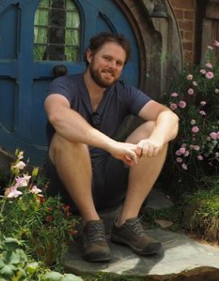Date: Monday 1 July 2024
Time: 11:00am – 12:30pm AEST
Venue: Sofitel Melbourne on Collins
About the 2024 session
Welcome to another fantastic year of activity within STEM. The session will be suitable for academic and professional staff involved in any way in STEM learning and/or teaching in higher education.
The network event will give you the opportunity of meeting others with similar interests, share practice and discuss topics of interest.
This year we will have one larger presentation with question time and discussion groups branching off from the different avenues considered. Feedback last year was that this was better than attempting to slot in separate two presentations. The aim is to share some useful and interesting practice, encourage dialogue and an opportunity to ask questions.
Proposed program:
- Presentation theme: Positioning Generative AI within an Australian Universities Context
- Retrospective/update: where are we 12 months on from our discussion of AI at our last STARS STEM Network event?
- Emerging and established areas of good practice domestically and abroad. Multiple pathways forward chosen by different institutions.
- Quality resources supporting students and general adoption, as well as staff opportunities and challenges. Plus improvements in catching AI generated materials.
- How does this mesh with the recent Australian Universities Accord Final Report – https://www.education.gov.au/australian-universities-accord/resources/final-report
- Structured discussions:
- Emergent discussion points brought to light by participants relating to presentation themes.
- Challenges and adoption of Generative AI within your institution.
- Hybrid online and on-campus teaching – opportunities and challenges.
- STEM learning resources and assisted resource development through AI.
Details:
The STEM Education Network session will loosely dedicate 20-30 minutes to the initial presentation. As there are four themes, we expect there may be a need for extended question and comment time to explore areas where workshop participants are able to share or relay useful insights from their domains and institutions. As we continue to find our way as an industry these discussions are likely quite functional, as such if greater time is needed to explore them, we will look to replace or append an additional structured discussion group.
The “Positioning Generative AI within an Australian Universities Context” presentation is based on our continuing efforts as academics and practitioners to understand how best to employ and exploit the capabilities we see emerging rapidly from generative AI. We will provide a retrospective based on the far more tentative discussion of generative AI as a lens for demonstrating just how rapidly the landscape is changing, and how much progress has been made in a single year.
The second theme looks at how institutions around the globe have over the last year improved and systematised their offerings and supports for both staff and students. Notably differing approaches and levels of acceptance abound.
Our third theme aims to share some useful practitioner knowledge in the form of quality resources supporting adoption and advising students of risks, as well as exemplars supporting staff adoption and teaching innovation, as well as mastering the challenges associated with generative AI. As a bonus we will also talk through the strides made in recent months in detecting AI generated materials, plus potential risks on the horizon.
Finally considering the recent Australian Universities Accord Final Report we examine the goals for the accord and how our AI supported future meshes with these laudable efforts to expand higher education across Australia.
Convenors
Dr Richard Medland (SFHEA)
Senior STEM Educator
Queensland University of Technology
Richard is a Senior STEM Educator at the Queensland University of Technology (QUT). Richard is a leader for STIMulate a nationally and internationally awarded university-wide support for learning service (AAUT program award 2016, Two Wharton Reimaging Education awards 2016). His work focuses on support for learning good practice, designing and introducing ICT in developing environments and resource use in homes and offices. He has co-authored over 20 reports and research papers including publications within IEEE Pervasive Computing, STARS and CHI (link to QUT ePrints). Richard is a twice recognised recipient of the QUT Vice Chancellor’s performance fund, and he was an invited scholar at the Oxford Internet Institute.
 Matt Begun
Matt Begun
STEM Educator
Queensland University of Technology
Matt is a STEM Educator and Associate Lecturer at Queensland University of Technology (QUT), where his expertise lies in mathematics, statistics, and data science. He is actively involved in enhancing and supporting peer learning initiatives, particularly the STIMulate program. With a diverse background that spans software development, banking, and teaching applied mathematics and evidence-based practice, Matt brings a wealth of experience to his role. His research interests have been varied, including defence, public health, and medical education. Currently, Matt is focused on exploring how technology can be leveraged to enrich the teaching and learning experience.
Planning Committee
 Ian Lightbody (SFHEA)
Ian Lightbody (SFHEA)
Strategic Lead (Support for Learning)
Queensland University of Technology
Ian is the Strategic Lead (Support for Learning) at the Queensland University of Technology. He was formerly the coordinator of the QUT STIMulate Program, which received numerous national and international accolades, which he continues to oversee. He has a background in teaching, management, and working with volunteers. Ian has post-graduate qualifications in education and business, and he is studying STEM support-for-learning in higher education in his doctoral studies. Ian has interests in peer-to-peer approaches, proactive motivational support and collaborative organisational strategies to enhance success for individuals and learning organisations. He has contributed to numerous publications in the field (link to QUT ePrints).
